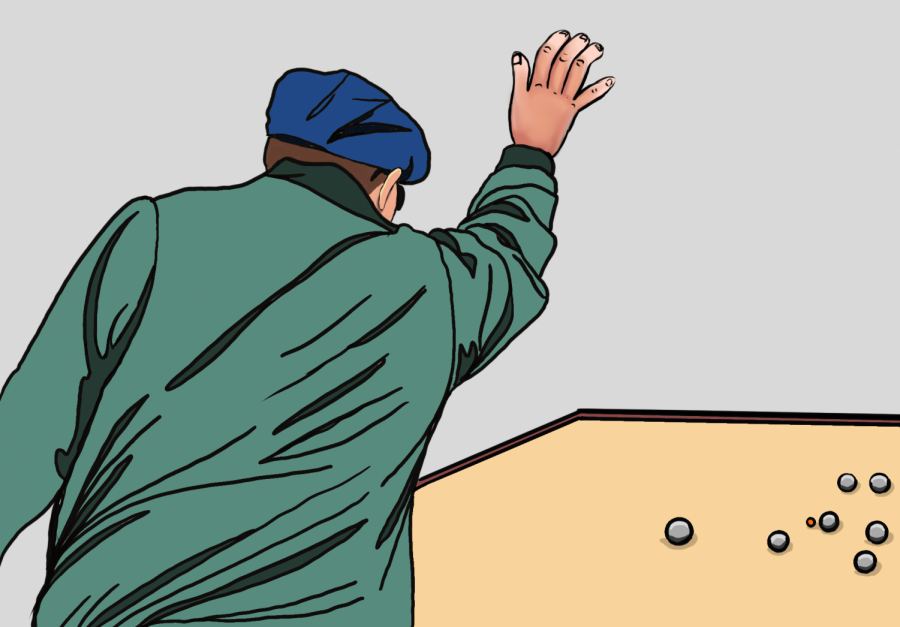Former Assistant Athletic Director Lee Coleman came to Whitman in 1980 and soon started to organize a reunion for past female athletes. Unfortunately, her hard work struggled to attract many alumni.
“I found that there were no women alums who played varsity sports,” said Coleman, who also coached the men’s and women’s swim teams.
Coleman arrived eight years after Congress passed Title IX, the law that states, “no person in the United States shall, on the basis of sex, be excluded from participation in, denied the benefits of, or be subject to discrimination under any educational program or activity receiving federal financial assistance.” At that time, however, Whitman still gave men more funding and priority to facilities, like the rest of the nation did.
“You just funded men’s athletics because that was the history of athletics. Women played club or intramurals, men played varsity,” Coleman said.
Whitman joined the Association for Intercollegiate Athletics for Women (AIAW), a national organization that merged with the NCAA in 1981. Regionally, the women competed in the Women’s Conference of Independent Colleges (WCIC), which later merged with today’s Northwest Conference.
Coleman also served as women’s athletic director and pushed for equality through that position.
“I talked all over the campus that women’s athletics should be funded well. People listened. Women just had to show that they were good athletes, then gradually people woke up and said, ‘Wow, these women are good athletes.’ You can’t just argue your way, you have to show people,” Coleman said.
On paper, Title IX gave women equal opportunities, but some people still questioned women as athletes.
“We were coached by coaches who had been fired by the men’s program, but they were okay for the ‘girls,'” said Ann Beery, who played varsity basketball, volleyball and tennis for Whitman from 1980 to 1982. “There was coaching behavior that was unacceptable in any setting, and we were told by the administration that ‘we weren’t going to be professional athletes, so why don’t we just go back to our tea and cookies and not cause anymore trouble.’ There are coaches everywhere that make poor choices, but the way an administration reacts to the problem tells the student-athlete everything she needs to know about how she is viewed.”
Even today, a community where everyone always treats male and female athletes equally may be an ideal.
“As a girl, when you tell people you are an athlete, they become a little more impressed,” soccer team captain senior Alisa Larson-Xu said.
“Society has always pushed boys into sports as an outlet for energy while little girls want to please more: those are the stereotypes we’ve always had to deal with. Sports have made it easier for a competitive girl to be accepted as a competitor,” women’s basketball coach Michelle Ferenz added.
When Beery and the tennis team qualified for nationals, the athletic department denied the team their trip to compete in Wisconsin, and the team had to petition the president of the college to finally go. Beery soon transferred to DePauw University in Indiana.
“We truly thought that we were equal up to then and that the program just needed time to develop, but we were wrong. I left because I knew that my athletic skill was just as much talent as a musician playing an instrument or the skills of a superior mathematician, and [I] wanted to be treated with fairness and equality,” said Beery, who has returned to Whitman as the assistant men’s tennis coach.
Beery said the school’s attitude had started to change when she left in 1982. That same year, then-Athletic Director John Wilcox set an equal budget for men’s and women’s athletics. Wilcox increased spending on women’s programs while maintaining the men’s budget.
Like the rest of the nation, Whitman distinguishes less between men’s and women’s teams in recent years.
“My years coaching both [sexes], I learned to treat teams like athletes, not boys or girls, or young men or women,” Athletic Director Dean Snider said.
Whitman’s recent steps to strengthen its athletics have reflected a habit of equality. This year, the new W-Club is funding full-time assistant coaches for both basketball teams.
“As we are adding resources to the men’s programs, we are also adding resources to the women’s program in the exact same amount with the exact same purpose,” said Snider. “While W-Club is allowing us to increase our support to these two programs, I’m not sure it’s doing it specifically thinking of Title IX. [Equality] is becoming part of the culture: you don’t help out one gender’s program without helping out the other.”









